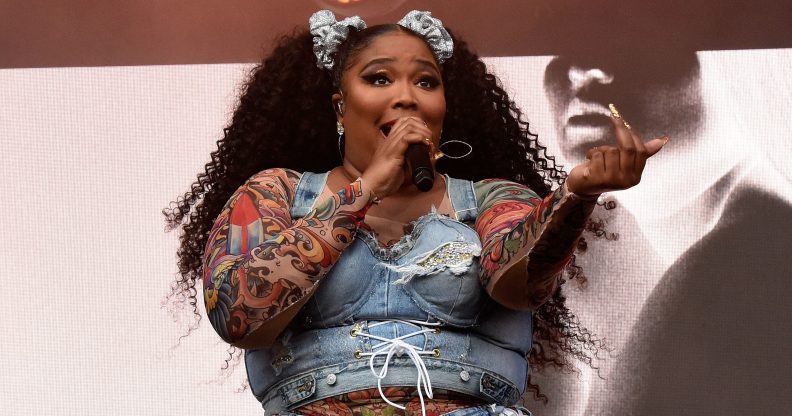Lizzo is trying to trademark the phrase ‘100% that bitch’

Lizzo at Made in America in Philadelphia, 2019. (Arik McArthur/WireImage)
US singer Lizzo is reportedly trying to trademark the phrase “100% that bitch” from her 2017 hit ‘Truth Hurts’.
The Houston-based artist filed a trademark application for the phrase in June 2019, according to The Blast.
Lizzo reportedly wants to use the phrase on an upcoming range of clothing merchandise, including t-shirts, jackets, hoodies, hats, bandanas, wristbands and more.
But Lizzo may have taken the phrase from another black woman. London-based musician Mina Lioness claims that she is the originator of the line, having tweeted, “I did a DNA test and found out I’m 100% that bitch” on 25 February 2017.
I did a DNA test and found out I’m 100% that bitch.
— (????) home secretaryina (@MinaLioness) February 25, 2017
The line in ‘Truth Hurts’ is: “I just took a DNA test, turns out I’m 100% that bitch”.
‘Truth Hurts’ was released on 19 September 2017.
Lizzo has previously said that she’d “never seen” Mina Lioness’ viral tweet – which has more than 26,000 retweets – and that she based her song lyrics on a meme she saw on Instagram.
Truth Hurts was written in June fyi— someone made a meme on IG that said “I’m 100% that bitch” and we were inspired, I give that meme credit when I talk about making the song. I’ve never seen ur viral tweet but I’m glad it exists.
— |L I Z Z O| (@lizzo) February 9, 2018
At the end of August, when the news first broke that Lizzo was trying to trademark “I’m 100% that bitch”, Lioness tweeted: “I cannot get over is how brazen Lizzo and her team have been in ignoring my whole presence.”
What I cannot get over is how brazen Lizzo and her team have been in ignoring my whole presence. They’re doing it because they know I have no capital to address her.
I’m just the poor Black girl from London that don’t have a dog in the fight.— (????) home secretaryina (@MinaLioness) August 28, 2019
However, according to an intellectual property (IP) lawyer who spoke to The Guardian, even if Lizzo did take Mina Lioness’s tweet, it doesn’t matter.
“Merely saying a short phrase or word in public doesn’t give you a legal monopoly over it,” Deborah Peckham said.

